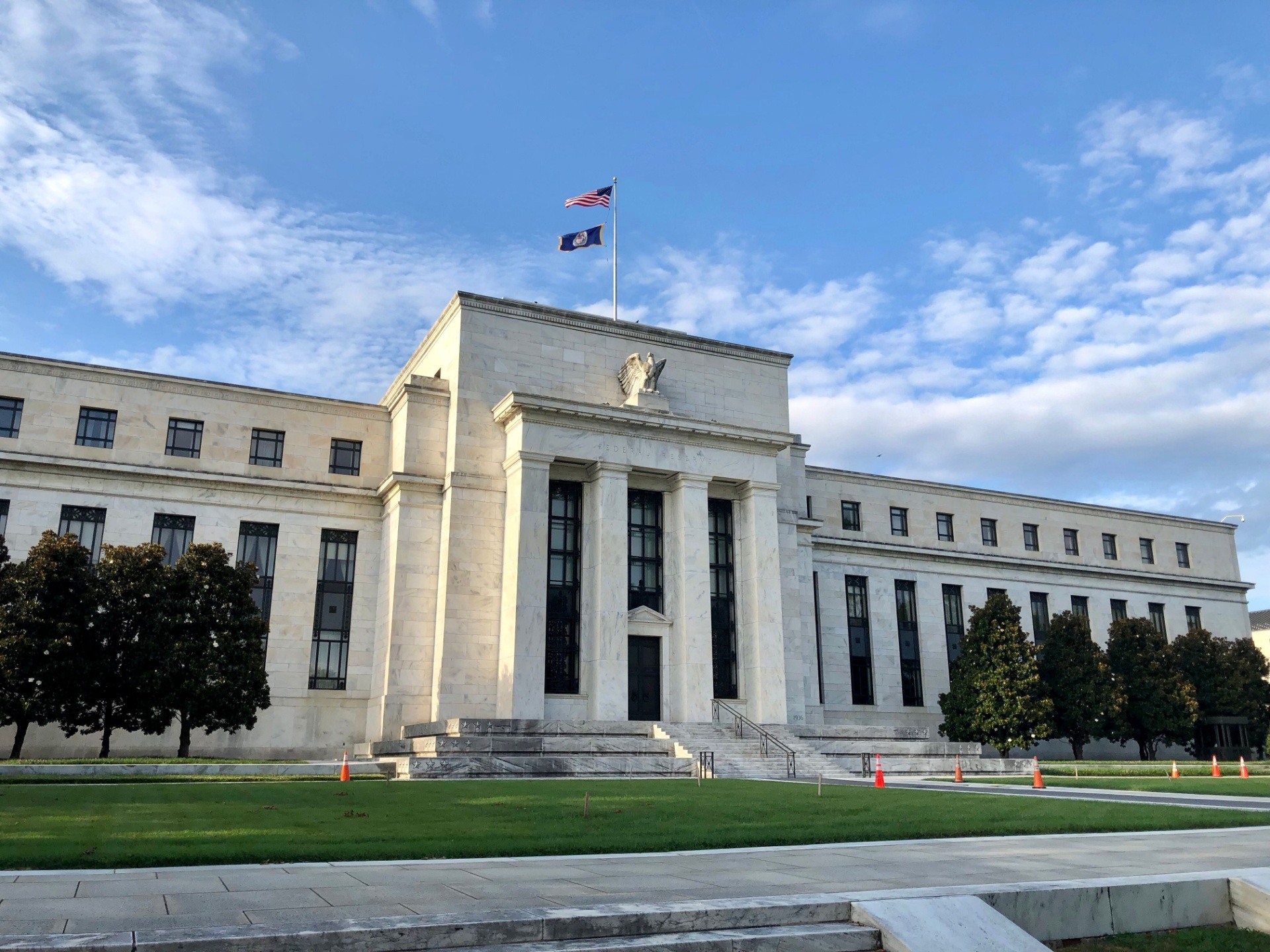Weekly Briefing: UK Property Prices Rebound, Manufacturing slows but sentiment rises, US Fed Cuts rates by 0.5 points & 30 years of the EIS
In this week's briefing, Britain's property value increased post-summer slowdown, a UK manufacturing slow as a result of domestic order decline, the US FOMC’s decision to cut interest rates by 0.5% beginning the policy easing journey & the enterprise investment scheme’s (EIS) 30th anniversary.
UK Property
UK Housing Market Rebounds Amid Post-Election Stability and Lower Mortgage Rates
- In September, UK home asking prices rose by 1% to £370,759, marking a recovery after a 1.5% dip in August, twice the long-term average of 0.4%, which, according to Rightmove, was driven by post-election stability and falling mortgage rates.
- Larger properties, such as four-bedroom homes, saw a 0.8% increase, while three-bedroom homes rose by 0.7%. In contrast, smaller homes only experienced modest growth of 0.2%.
- Growth in real wages, decreased rates and increased economic stability pre-budget helped boost demand, with 27% more sales agreed than the same time last year, marking the fastest annual rate increase in over a year.
- Sellers also responded to the improved market conditions, with the number of new listings up 14% from September 2023. The availability of homes per estate agent reached its highest level since 2014.
- “The autumn action has started early with a strong rebound in activity from both buyers and sellers compared with the subdued market at this time last year, continuing the momentum from the better-than-expected summer market,” said Tim Bannister, Rightmove’s director of property science.
- Tim Bannister said the market was "invigorated" by the certainty of a new government and the first Bank of England rate cut in four years.
- However, experts like Nathan Emerson, Property Mark's chief executive, cautioned that buyers might be rushing to close deals before potential changes in the upcoming Budget, adding a note of uncertainty.
UK Economy
UK Manufacturing Slows as Domestic Orders Decline, But Exports Drive Optimism
- According to the recently released Make UK/BDO Manufacturing Outlook survey, UK manufacturing output contracted for the first time since 2020, with a balance of -2% in the third quarter, down from +9% in the previous quarter.
- On a brighter note, export orders performed well, increasing to +11%, driven by strong demand from the EU, particularly in machinery and electronic goods, however, domestic orders ticked down 2%.
- Despite this dip in production and domestic orders, industry confidence grew, with the sentiment index rising slightly from 6.9 to 7.1, suggesting optimism about the resilience of the sector.
- Looking ahead, analysts expect output to improve significantly in the coming quarter, with predictions of a significant +33% output balance.
- BDO noted that the past few years of "extraordinary turbulence" in the UK economy seem to be stabilising, bolstering cautious optimism in the sector.
- The survey concluded with a positive outlook: “With little in the way of notable economic shocks occurring in the UK market over the past eight months, this confidence in consistency had been shared by economists and the industry alike, as measured by a remarkably positive and robust business confidence index."
US Economy
US Federal Reserve Cuts Rates by Half-Point, Signals More Easing Amid Economic Uncertainty
- The US Federal Reserve made its first interest rate cut in over four years, reducing the benchmark rate by half a percentage point to 4.75%-5%, initiating an easing cycle to prevent potential economic and labour market slowdowns.
- Fed Chair Jerome Powell stressed that the central bank’s decision was aimed at keeping the US economy strong, with the cut designed to preempt a potential weakening of key economic indicators.
- The Fed’s focus remains on balancing inflation, which has eased, whilst maintaining a fairly robust labour market. Powell emphasised that the bank was prepared to "dial back" or adjust policy as necessary, based on key data.
- Global markets reacted positively, with European, Japanese, and Hong Kong equities rising, however, US stocks initially rallied but closed slightly lower by the end of the day.
- Analysts pointed to underlying concerns about the economy, with some noting that the labour market may be starting to slip, potentially prompting the Fed's larger-than-expected rate cut.
- “The US economy is in a good place and our decision today is designed to keep it there,” Fed chair Jay Powell said at a news conference on Wednesday. “This recalibration of our policy stance will help maintain the strength of the economy and the labour market and will continue to enable further progress on inflation as we begin the process of moving towards a more neutral stance.”
UK Investing
Enterprise Investment Scheme Marks 30 Years of Supporting UK Innovation and Growth
- Celebrating its 30th anniversary, our latest blog post reveals how the Enterprise Investment Scheme (EIS) has helped channel over £32 billion in private investment into more than 56,000 UK startups, driving innovation in key sectors like fintech, deep tech, and life sciences.
- Over these 30 years, the EIS has played a pivotal role in the success of some of the UK’s most prominent companies, including Revolut, Deliveroo, and Gusto, while also creating thousands of jobs across the country.
- Over £9 billion in tax relief has been provided to investors through the EIS, helping to encourage further private investment into higher-risk startups and supporting the next generation of British innovation.
- The scheme’s adaptability over the last 30 years has been key to its longevity, with investment limits and relief structures evolving to meet changing economic conditions and inflation, ensuring EIS remains attractive to both investors and startups alike.
- Alongside major fintech developments, EIS-backed companies have tackled significant challenges in sectors like health tech and sustainability, securing crucial capital to advance technologies such as revolutionary diabetes treatments and cancer diagnostics.
- With ongoing government support and increasing participation from investors, the EIS is well-positioned to continue its mission of driving the UK’s economic prosperity and technological leadership, whilst providing investors with an array of attractive tax reliefs as well as attractive money-on-money returns.
Final Note
This week's developments painted a diverse economic picture.
In the UK, the housing market rebounded from its summer slump with a notable rise in asking prices, seemingly driven by post-election stability and lower mortgage rates, though some looming uncertainties persist.
Meanwhile, UK manufacturing showed signs of contraction, but a boost in exports offered a glimmer of hope for the sector's recovery in addition to an increase in market confidence.
Across the Atlantic, the US Federal Reserve's aggressive rate cut signals concerns over a potential economic slowdown, as a result, global markets reacted with cautious optimism, with continued mixed signals going into Thursday’s premarket.
Amid these trends, the 30th anniversary of the Enterprise Investment Scheme (EIS) serves as a powerful reminder of the scheme's ability to create meaningful impact on UK businesses and highlights the importance for investors to seize these high-potential, tax-efficient investment opportunities.
As these trends unfold, grasping tax efficient opportunities and staying vigilant to macroeconomic risks will be crucial for navigating the ever-shifting investment landscape.
%20(3)%20(2).jpg)







